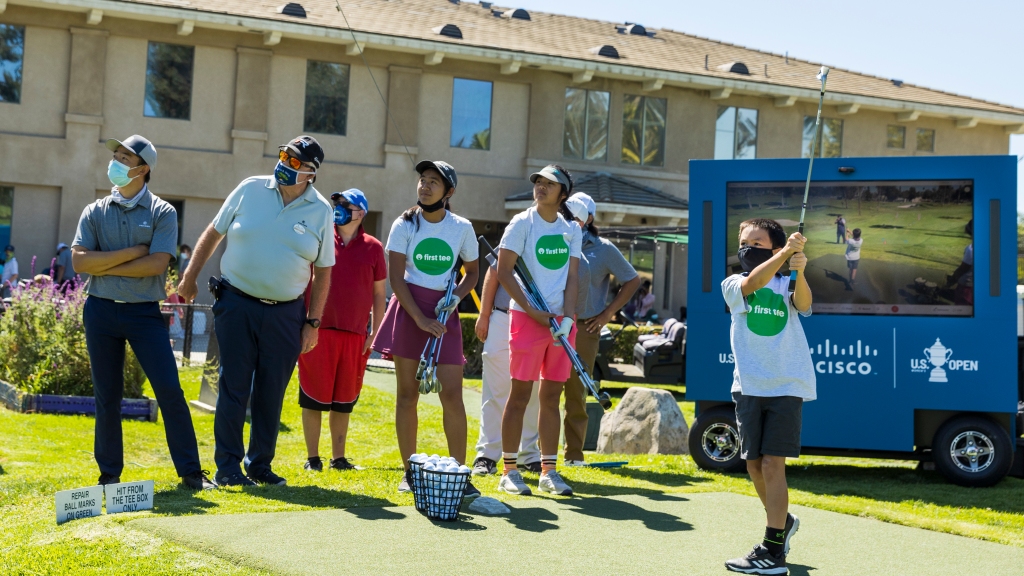Nick Nelson has been watching the First Tee transform lives for nearly 20 years.
The CEO of First Tee Monterey County in California, Nelson comes from an area where golf is prominent, yet the difference in diversity from the coast is much different than farther inland.
On the Monterey Peninsula sits Pebble Beach, one of the most iconic golf venues in the world. About 23 miles inland is Salinas, California, with a population of more than 160,000 with a significant Latino population that is surrounded by farmland. The area also had one of the highest youth suicide rates in the state.
That, among other reasons, is why Nelson wanted to use the First Tee to help kids in Monterey County, and it’s why the U.S. Golf Association’s IDEA (Inclusion, Diversity, Equity and Accessibility) grant is pivotal to help Nelson continue changing lives.
“Having their support means so much to us on the front lines,” Nelson said.
Commemorating a 25-year partnership, the USGA has continued its investment in First Tee by awarding IDEA grants to 25 chapters across the country, including Monterey County.
The IDEA grant program funds community-based programs that aim to grow participation in golf and in particular First Tee’s programs, improving pathways to inclusion, diversity, equity and accessibility. In 2022, 25 chapters from across the country were awarded up to $25,000 each to provide transportation, hire diverse coaches, train volunteers and build programs in diverse communities.
The USGA has invested in the First Tee since the start, with its $3 million, three-year commitment in 1997 spurring First Tee to reach more than 2 million kids annually.
“Your first experience or two in the game can really make a lifetime of difference,” said Mike Whan, CEO of the USGA, told Golfweek. “If you get it right here, you get it right forever.”
The USGA’s targeted support has helped First Tee drive greater equity among underrepresented youth to access golf. The IDEA grants, launched in 2021, fund innovative initiatives for golfers with disabilities, those in Spanish-speaking communities, Indigenous people and at-risk students, among others.
The efforts are contributing to the diversification of the sport: Since 1997, there has been a 25 percent increase in non-Caucasian golfers, many of whom entered the game through First Tee.
Nelson said in Monterey County, they started with about 100 First Tee participants. That number is up to 10,000.
“And we want to get to…
..
Click Here to Read the Full Original Article at Golfweek…
